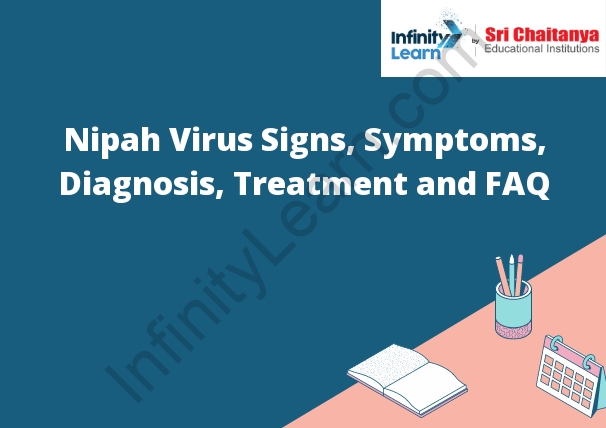Table of Contents
Nipah Virus
The Nipah virus is a highly deadly virus that is spread through contact with infected animals, such as bats or pigs. The virus can cause severe respiratory illness and fatal encephalitis (inflammation of the brain). There is no specific treatment for the virus and it is currently not known how to prevent its spread.

Some Common Signs and Symptoms are-
1. Feeling very tired all the time
2. Having difficulty concentrating
3. Feeling irritable or short-tempered
4. Experiencing mood swings
5. Feeling overwhelmed
6. Lacking motivation
7. Having difficulty sleeping
8. Experiencing a loss of appetite or overeating
9. Feeling sad or anxious
Diagnosis of Nipah Virus
Nipah virus is a zoonotic virus that is closely related to Hendra virus. It is a newly emergent virus that was first identified in Malaysia in 1998. The virus is transmitted to humans from infected animals, most commonly bats. It can cause a range of symptoms including fever, headache, and respiratory illness. In some cases, the virus can cause severe neurological illness and death. There is no specific treatment for nipah virus infection and there is no vaccine available. Prevention of nipah virus infection is through good hygiene and avoidance of contact with infected animals.
Treatment of Nipah Virus
There is no specific treatment for Nipah virus infection. Treatment is supportive and includes management of symptoms and prevention of complications.
Intravenous fluids and electrolytes may be given to prevent dehydration. Acetaminophen may be given to reduce fever and pain. Severe cases may require intensive care and support including respiratory support, dialysis, and blood products.
There is no vaccine or specific treatment available for Nipah virus infection. Treatment is supportive and includes management of symptoms and prevention of complications.
Nipah virus is a newly identified virus that causes severe respiratory illness and fatal encephalitis in humans. The natural reservoir of the virus is unknown, but it is thought to be a fruit bat. The virus was first identified in 1998 during an outbreak of encephalitis in Malaysia. A total of 105 cases were identified, including 105 deaths. In 2001, an outbreak of encephalitis caused by Nipah virus occurred in Bangladesh. A total of 39 cases were identified, including 31 deaths. Nipah virus is also thought to be responsible for an outbreak of encephalitis in Siliguri, India in 2004. A total of 17 cases were identified, including 14 deaths.
There is no specific treatment for Nipah virus infection. Treatment is supportive and includes intensive care for respiratory and neurologic support. Ribavirin, an antiviral drug, has been used in some cases, but its effectiveness is unknown.
The best way to prevent Nipah virus infection is to avoid exposure to the virus. This can be done by avoiding contact with fruit bats and by following good hygiene practices.







